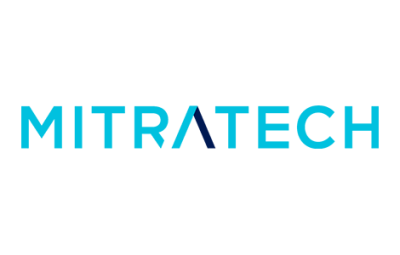Agenda Day 1
8:00 am - 8:30 am
REGISTRATION & COFFEE
8:30 am - 8:35 am
OPENING REMARKS FROM IQPC
8:35 am - 8:45 am
OPENING REMARKS FROM THE CHAIRPERSON
Mitzi Berberi [Chairperson] -
Chief Business Development Officer,
Kiwi.com
8:45 am - 8:50 am
LIVE POLLS
8:50 am - 9:20 am
THE FUTURE OF THE UK ECONOMY – AN ECONOMIST’S VIEW
Paul Johnson CBE -
Economist, Former Director of IFS, & Provost,
The Queen's College, Oxford
9:20 am - 10:05 am
PANEL DISCUSSION: LEADING WITH INTEGRITY: ETHICAL DILEMMAS AND ORGANISATIONAL CONSEQUENCES
Lorynn Demetriades -
Senior Managing Director,
Ankura
Daniel Quy - General Counsel and Director of Compliance & Ethics, Royal Mail
Habibunnisha Patel - General Counsel and Company Secretary, Cancer Research UK
Harpreet Thandi - Regional Counsel (General Counsel) UK & Ireland, Ferrero
Stephen Storey - Group Head of Ethics & Compliance, Compass Group
Louise Kelso - General Counsel and Director of Legal Services, The University of Edinurgh
In recent years, a growing number of companies have collapsed, not due to due to economic downturn, but due to cultural and ethical failure – not seldomly likened to actions and decision from the very top. As senior leaders, both General Counsel and Chief Compliance Officers have an opportunity and maybe even obligation to question and calibrate the ethical compass of corporate decision making. But in a world where choices rarely fall into neat categories of right and wrong, navigating the grey is both inevitable and complex. Some of the most lucrative business opportunities emerge from these ambiguous spaces. This panel invites you to challenge your assumptions, reflect on your own moral compass, and engage with candid discussions as our speakers unpack real-world cases and confront the uncomfortable truths behind ethical leadership.
• Understand the reputational risks of ethical missteps and how proactive governance can mitigate them
• Contemplate how evolving societal expectations are reshaping what is considered “acceptable” in corporate behaviour
• Discuss how to navigate complex, ambiguous scenarios where the “right” choice isn’t always clear-cut
• Examine the role of senior legal and compliance leaders in shaping and challenging the ethical direction of corporate decision-making
10:05 am - 10:35 am
PARTNER PRESENTATION: OPERATIONALISING AI GOVERNANCE: PRACTICAL FRAMEWORKS TO MANAGE THIRD-PARTY AI RISK AND ENSURE COMPLIANCE
Henry Umney -
Managing Director, GRC Strategy,
Mitratech
After understanding the risks and regulatory challenges of ai in third-party ecosystems, the next step is putting governance into action. Translate theory into practice by equipping yourself with real-world frameworks, tools and strategies to effectively manage ai-driven risks across your vendor landscape.
Vasudeva Mahavishnu - Co-founder and CTO, Altumatim
Get ready for a fun, highly engaging, Family Fortunes-style session! We'll split the room into teams to find the top answers to burning questions about Gen AI and legal tech adoption. We'll cut through the noise and the marketing jargon to discuss real-world challenges, concerns, and proven success frameworks. Don't miss this opportunity to learn directly from your colleagues, uncovering the practical policies and strategies they are actually using to move their departments forward. And the Survey Says...
If you missed part one of “The Testing Point”, join this screening to catch up on the film in order to following along with the thought-provoking discussion session that will follow later. Please note, there is no mini workshop taking place with this replay.
An educational series of sessions to offer you insights into the culture, regulatory environment and business opportunities into some of the world’s most interesting growth markets.
12:25 pm - 1:05 pm
ROUNDTABLE DISCUSSIONS
• HELPING THE BUSINESS MEET ITS ESG TARGETS
• HOW LEGAL AI CAN FINALLY PROVE THE BUSINESS IMPACT OF THE LEGAL & COMPLIANCE TEAM
• RECONSIDERING WHISTLEBLOWING SETUP IN THE AGE OF ETHICAL SCRUTINY
1:05 pm - 2:35 pm
LUNCH
In today’s unpredictable global landscape, forecasting what lies ahead has become more challenging than ever. Will your key growth markets face new sanctions? Can your critical suppliers weather the next wave of price surges? For those focused on safeguarding business continuity, resilience is the key. Waiting and hoping is no longer a viable strategy – practical steps and mindset shifts are vital. Join peers to discuss which proactive measures they are taking to stress test and build resilience into their operations.
2:40 pm - 2:45 pm
LIVE POLLS
2:45 pm - 3:15 pm
PARTNER PRESENTATION: LEADING THROUGH UNCERTAINTY: RISK & COMPLIANCE STRATEGIES FOR A SHIFTING GEOPOLITICAL AND REGULATORY LANDSCAPE
Gavin Proudley -
Head of Third Party Risk Proposition,
Dow Jones
As the lines continue to blur between trade, sanctions, anti-bribery and supply chain compliance, companies are under growing pressure to understand who they do business with, both directly and indirectly. But, for compliance leaders trying to create strategies to manage the associated regulatory and reputational risks, it can seem the only constant is change.
The announcement, and subsequent pause one month later of the BIS Affiliates Rule, strengthening of sanctions against Russia, and shifting timelines and prioritisation around ESG regulations in Europe, all demonstrate how quickly the regulatory picture is changing amidst a broader picture of geopolitical turbulence for companies to navigate.
• Explore lessons learned from previous regulatory shifts, including the BIS Affiliates rule announcement and pause, to ask how compliance teams can navigate uncertainty.
• Discuss the expanding role of the compliance leader from managing third-party due diligence to assessing customer and supply chain exposure and how recent regulatory developments are driving a convergence of risk domains across the enterprise.
• Hear strategic implications of the current geopolitical environment, the use of compliance instruments as leverage in broader negotiations, and why scalable, data-driven solutions are essential for managing risk at the pace of change.
3:15 pm - 4:45 pm
PRESENTATION: A FRAMEWORK FOR MINIMISING REPUTATIONAL RISK – REACTING TO A DATA BREACH
Magnus Boyd -
General Counsel & Data Protection Officer,
Randox Laboratories Limited
With high-profile data breaches making headlines almost weekly, it's clear that even the most sophisticated security systems can't guarantee complete protection against cyber-attacks. While tech teams are aiming to patch weak spots, in-house leaders should ensure that they have frameworks in place for both containment and PR management. In many cases it is not the data breach, but the response to the data breach that has affected a company’s reputation.
Across Europe and the UK, evolving regulations signal a sharp rise in scrutiny and a declining tolerance for bribery and corruption. For organisations, this means greater pressure to ensure compliance, not just on paper, but in practice. This session invites you to engage with peers on the latest enforcement actions and regulatory shifts, exchange insights on building effective anti-corruption frameworks, and confront a growing challenge: how to address complacency at the C-suite level, even when the risks are clear and the consequences severe.
Legal’s role in M&A extends well beyond reviewing contracts. In-house counsel often step into the role of project manager, orchestrating complex dynamics that can make or break post-deal integration. Their influence touches everything from cultural alignment to executive collaboration, and the ripple effects are felt long after the ink dries. This session invites you to explore real-world stories of integration success and failure, unpack the challenges of navigating personalities and cultures, and build a checklist of critical conversations to guide your next deal. Whether you're preparing for an acquisition or reflecting on a recent one, this is your chance to learn what truly drives seamless integration.
5:35 pm - 6:05 pm
PRESENTATION: UPSKILLING FOR THE AI ERA: TRANSFORMING LEGAL LEADERSHIP
Dennis Garcia -
Vice President & General Counsel,
Litera
In an era where AI is rapidly transforming legal decision-making, a critical skills gap emerges. While AI now influences one in four legal department decisions, 70% of General Counsel feel unprepared to effectively manage AI-enabled teams. This session will provide strategic insights into developing the critical leadership capabilities and necessary upskilling to effectively become a leader poised for integration of legal tech success.
• Understand the current AI adoption landscape in legal departments and identify critical skills gaps.
• Learn practical strategies for training leadership to effectively manage and leverage AI technologies.
• Develop a roadmap for building AI literacy and technological competence within legal teams.
• Explore best practices for creating a culture of continuous learning and technological adaptation.
6:05 pm - 6:35 pm
FIRESIDE CHAT ARE YOU READY? PREPARING FOR THE UNCERTAIN FUTURE OF ESG IN THE UK
Chris Thomas -
Group Chief Legal & Compliance Officer,
Odeon Cinemas Group
Jessica Dicks - Head of Legal, ESG & Regulatory, Primark
As UK and EU regulators recalibrate expectations around sustainability reporting, corporate purpose, and social impact, in-house legal and compliance teams face a moving target. From the incoming sustainability disclosure requirements (SDR) and corporate sustainability due diligence directive (CSDDD) to evolving green claims enforcement and investor scrutiny, the ESG landscape is more dynamic, and uncertain, than ever.



































